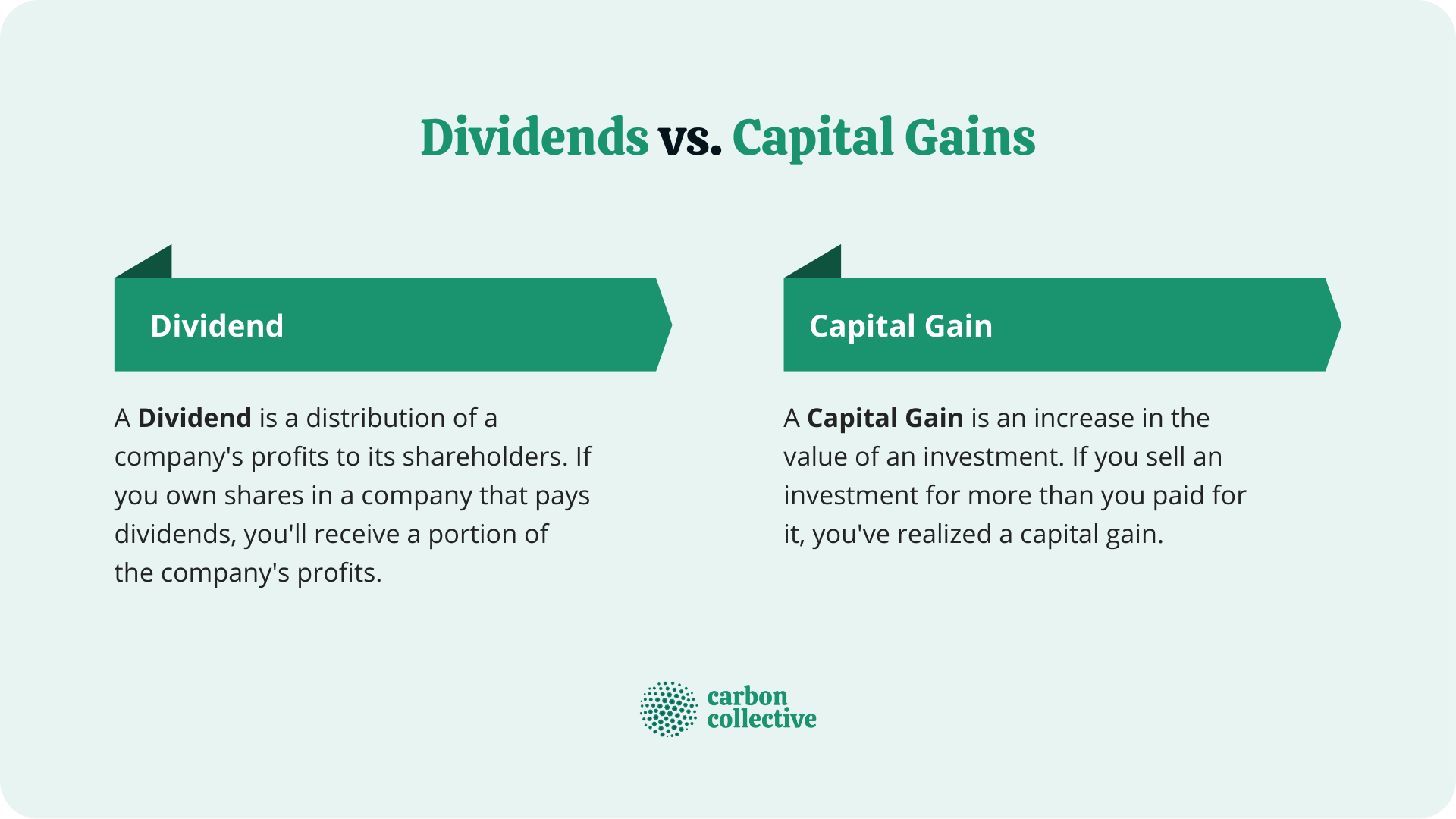Dividends vs. Capital Gains: Differences Between the Two
When it comes to your investment portfolio, you may wonder what the difference is between dividends and capital gains. Both can be great ways to boost your returns, but they work differently.
They are both forms of income, but there are some key differences between the two that you should know about before making any decisions.
What Is a Dividend?
A dividend is a distribution of a company's profits to its shareholders. If you own shares in a company that pays dividends, you'll receive a portion of the company's profits.
Dividends are usually paid quarterly, but some companies pay them monthly or annually. They can be paid in cash or shares of the company's stock.
What Is a Capital Gain?
A capital gain is an increase in the value of an investment. You've realized a capital gain if you sell an investment for more than you paid.
Capital gains can be short-term or long-term. Short-term capital gains are realized on investments held for one year or less, while long-term capital gains are realized on investments held for more than one year.
Taxation of Dividends and Capital Gains
The taxation of dividends and capital gains can vary depending on the type of investment and the amount of time that it is held.
Dividends are generally taxed at a lower rate than ordinary income, while capital gains are taxed at a lower or higher rate, depending on the holding period.
Types of Dividends
There are two types of dividends:
Qualified
Qualified dividends are those that meet the requirements set forth by the IRS. A dividend must be paid by a U.S. company or a foreign company publicly traded on a U.S. stock exchange to be considered qualified.
Non-Qualified Dividends
Non-qualified dividends are those that do not meet the requirements set forth by the IRS. These dividends are taxed at a higher rate than qualified dividends.
Types of Capital Gains
Capital gains can be short-term or long-term:
Short-Term Capital Gains
Short-term capital gains are taxed at your ordinary income tax rate. The holding period for a short-term capital gain is one year or less.
Long-Term Capital Gains
The long-term capital gains are taxed at a lower rate. The holding period for a long-term capital gain is more than one year.
Which Is Better - Dividends or Capital Gains?
There is no easy answer to this question. It depends on your circumstances and investment goals.
If you're looking for immediate income, dividends may be the way to go. Capital gains may be the better option if you're looking to sell an investment in the future for a profit.
It's important to remember that both dividends and capital gains can be a great way to boost your investment returns. It's up to you to decide which one is best for your needs.
The Bottom Line
Dividends and capital gains are both forms of income, but there are some key differences between the two.
Companies pay dividends to their shareholders, while capital gains are realized when an investment is sold for more than the purchase price.
Dividends are generally taxed at a lower rate than ordinary income, while capital gains are taxed at a lower or higher rate, depending on the holding period.
Your individual circumstances and investment goals decide which is better for you.
Both dividends and capital gains can be a great way to boost your investment returns. It's up to you to decide which one is best for your needs.

FAQs
1. What is a dividend?
A dividend is a distribution of a company's profits to its shareholders. If you own shares in a company that pays dividends, you'll receive a portion of the company's profits.
2. What is capital gain?
A capital gain is an increase in the value of an investment. You've realized a capital gain if you sell an investment for more than you paid.
3. What is the difference between a qualified and a non-qualified dividend?
Qualified dividends are those that meet the requirements set forth by the IRS. A dividend must be paid by a U.S. company or a foreign company publicly traded on a U.S. stock exchange to be considered qualified.
Non-qualified dividends are those that do not meet the requirements set forth by the IRS. These dividends are taxed at a higher rate than qualified dividends.
4. What is the difference between a short-term capital gain and a long-term capital gain?
The holding period for a short-term capital gain is one year or less, while the holding period for a long-term capital gain is more than one year. Short-term capital gains are taxed at your ordinary income tax rate, while long-term capital gains are taxed at a lower rate.
5. Which is better - dividends or capital gains?
It depends on your circumstances and investment goals. If you're looking for immediate income, dividends may be the way to go. Capital gains may be the better option if you're looking to sell an investment in the future for a profit.
Both dividends and capital gains can be a great way to boost your investment returns. It's up to you to decide which one is best for your needs.
